They found work in Russia. Then it became a deadly trap
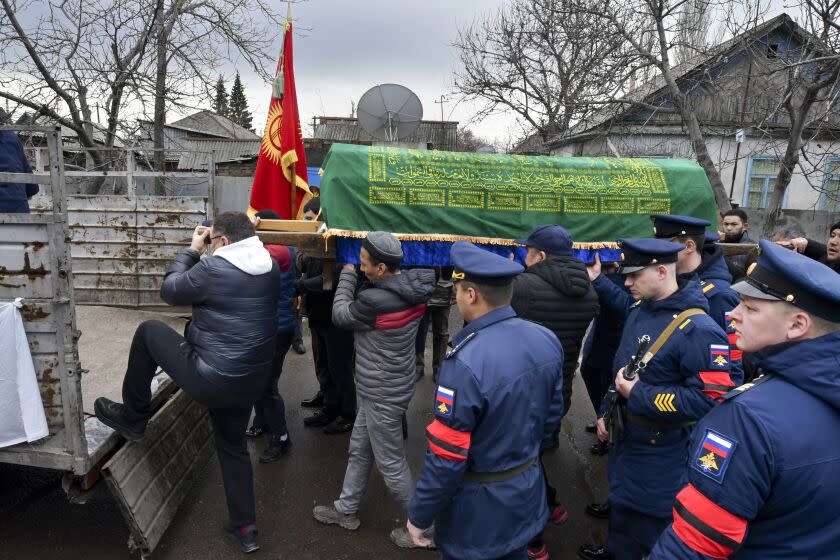
Rahmatullah, 29, lives in a two-room brick house on the outskirts of the capital city of this onetime Soviet republic state in Central Asia. The road outside is pockmarked by deep puddles and mud, but inside the metal gates, his property includes a repair shop, a stable with six sheep and a sauna that he built and rents out to guests.
A trained agronomist, Rahmatullah earned the money by working in Moscow as a bricklayer, delivery man and cab driver. He moved to the Russian capital from Kyrgyzstan as a guest worker in 2016, saved what he could, sent home the rest to his wife, father and family — and fled in November when he was ordered to serve in the Russian army.
In Ukraine.
“One of my friends has already died at the front,” he told a visitor as he sat on a mattress in his living room, his legs crossed and his back against the wall. “They promised him Russian citizenship if he served six months in the army.”
Rahmatullah, who like several others asked that his surname not be used due to his draft status, took a deep breath. “There was no way I was going to join the army,” he said. “So I had to leave, and quickly.”
Roughly 1.2 million Kyrgyz are employed as migrant workers in Russia, with many sending back earnings to their families at home back south, officials here say.
The remittances account for about 30% of the total gross domestic product of Kyrgyzstan, sandwiched among China and fellow onetime Soviet republics Tajikistan, Kazakhstan and Uzbekistan.
“For the national economy of Kyrgyzstan, the Russian labor market is vital,” said Temur Umarov, a Carnegie Foundation fellow conducting research in Bishkek. “If you are a guest worker in Russia and also have Russian citizenship, you will have even more advantages — for example, access to healthcare, social benefits and education.”
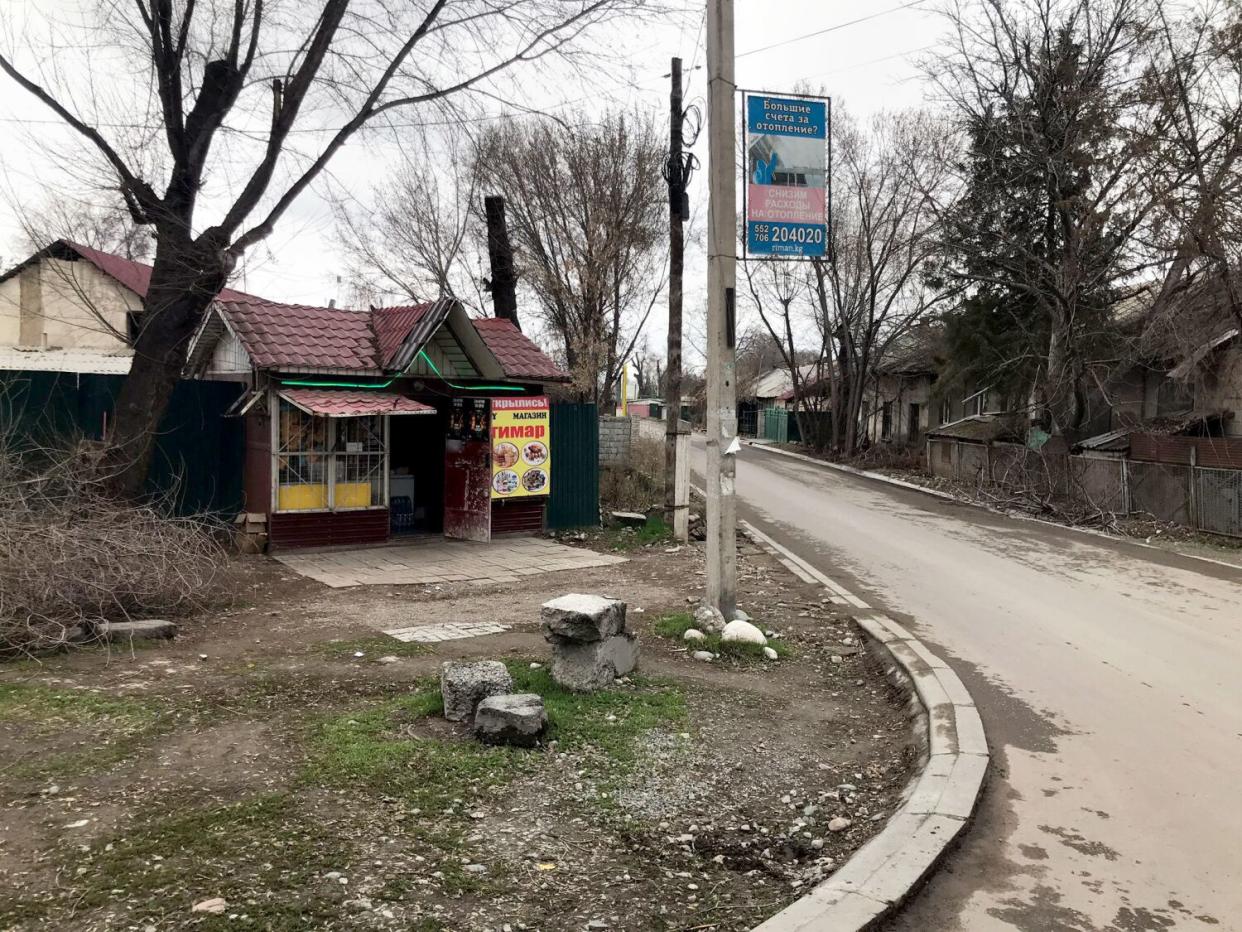
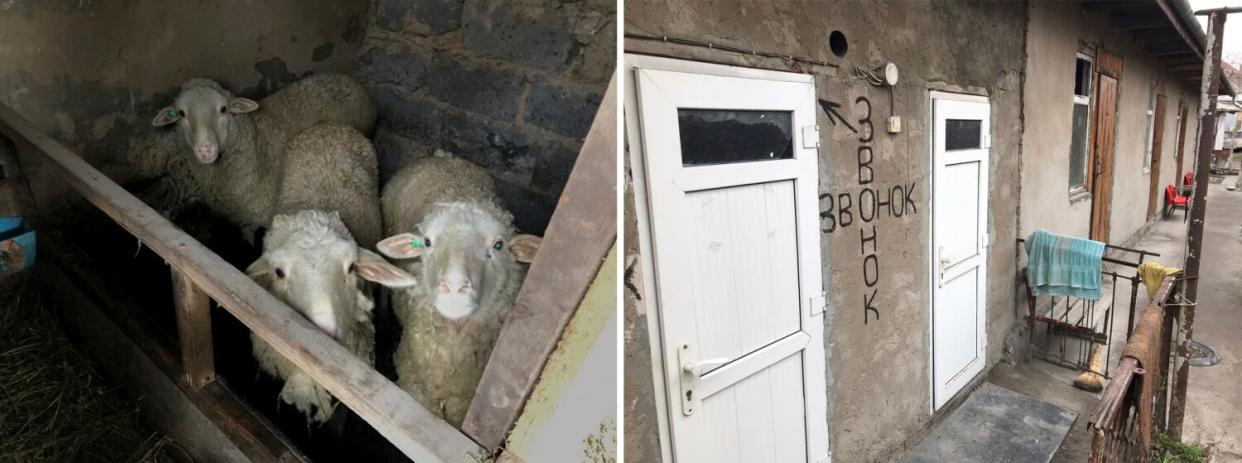
For Rahmatullah, that's exactly what was enticing. Just a year after moving to Moscow, he successfully applied for citizenship.
As a naturalized Russian, he had all the rights — but also all the obligations.
Yet never did he think he would be called up for military service, he says, even when Russia invaded Ukraine early last year.
So in November, when a militiaman knocked on the door of his apartment in the Khimki district of Moscow and handed him a draft notice, known as a povestka, he packed his belongings and hired a driver to motor southeast to Kazakhstan.
At the border near the Kazakh town of Petropavl, he says, he bribed a Kazakh border official and eventually made it to the capital of Astana. Rahmatullah was now safe — and lucky. Many others who have sought to evade Russian military service have been caught and sent to the Ukraine front.
“Gruz 200” — cargo 200 — are the code words for the front-line fighters who are returned to their homeland again in body bags. Gulnara Derbisheva, a migration expert and former deputy social protection minister of Kyrgyzstan, has counted a dozen corpses of Kyrgyz who served in the ranks of the Russian army or with the Wagner mercenary force and have been killed in Ukraine.
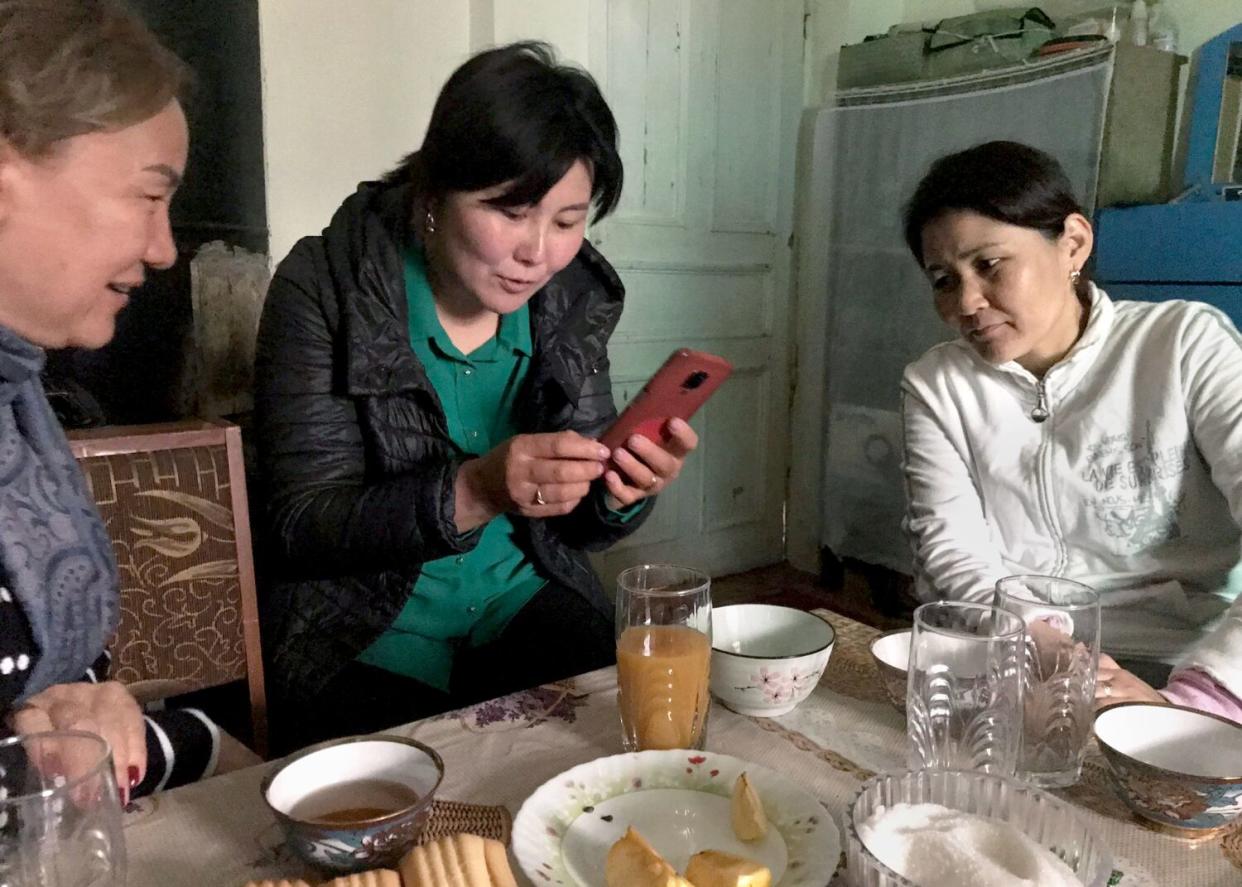
The bodies are usually flown in at night to the Russian military base in Kant, a small Kyrgyz town just over half an hour's drive east of Bishkek.
Derbisheva, a resolute woman in her mid-50s, takes care of Kyrgyz who are working in Russia and have gotten into trouble there. Problems include criminal activity, mostly drug trafficking or robbery. Others contact her because they are seeking to avoid military service and don't knowhow. Derbisheva frequently travels to Russia and takes care of Kyrgyz workers there in her capacity as representative of the Kyrgyz Trade Union of Migrants.
“We know of 12 dead, but very likely there are more,” Derbisheva said. “We also hear from relatives that quite a few Kyrgyz are fighting in Bakhmut,” the scene of fierce battles in eastern Ukraine.
The central government in Bishkek led by President Sadyr Japarov, a populist who came to power in the wake of a 2020 revolution, has remained mum on the issue. Dependent on Russian energy supplies, security guarantees and, not least, the labor market, Japarov has avoided any comment that might be seen as a provocation.
“You don't talk about the big brother,” said Derbisheva.
Moscow's state broadcasters dominate the airwaves and narrative; Kyrgyz television programs, which also largely steer clear of big politics, hardly play a role.
“Russian propaganda is intense — and it works,” said Ulan Nogoibaev, deputy head of the Council on Migration at the Kyrgyz parliament.
Support for Russia's invasion of Ukraine is particularly strong in Kyrgyzstan's rural areas, especially in the southwest, in regions like Batken or Osh — where the ideas of the liberal West seem a world away.
“In fact, we have a lost generation,” Nogoibaev said. “Those Kyrgyz who grew up in Russia or lived there for a long time hardly have any relationship with their homeland anymore.”
Some, like Nazar, have been reluctant to leave Moscow even after receiving draft notices. The 35-year-old construction worker tossed the summons and continued to work until he was stopped during an ID check in the Moscow subway a few weeks later.
He was fined about $65 and ordered to report immediately to a voyenkomat, a military placement office.
At that point, he realized there was no more time to waste.
“I didn't want to go to war,” Nazar now says. “I didn't want to fight.”
To avoid attracting attention, Nazar, who had lived in Moscow from 2016 to 2022, headed for Kazakhstan with a single piece of luggage.
“It was a mistake to take the Russian passport,” he said in hindsight. Although Russia relaxed its citizenship laws in 2020 and now accepts the possession of a second citizenship, a person who also holds a Russian passport is to the authorities first and foremost one thing: Russian. As a consequence, they have to serve in the army.
Some hope to go back to Russia one day, once the war is over and the draft is ended. Or they don't return to Kyrgyzstan at all.
In November, GulkayirAzizbayeva, 39, departed Moscow with her five children. Husband Begaly remained and has since hardly sent her any money.
She and the children live just a stone's throw away from Rahmatullah in a tiny cottage consisting of one room and a kitchen. The room is a bedroom and workplace in one. Her sewing machine table stands next to a bunk bed, and clothes pile up on a chair next to it.
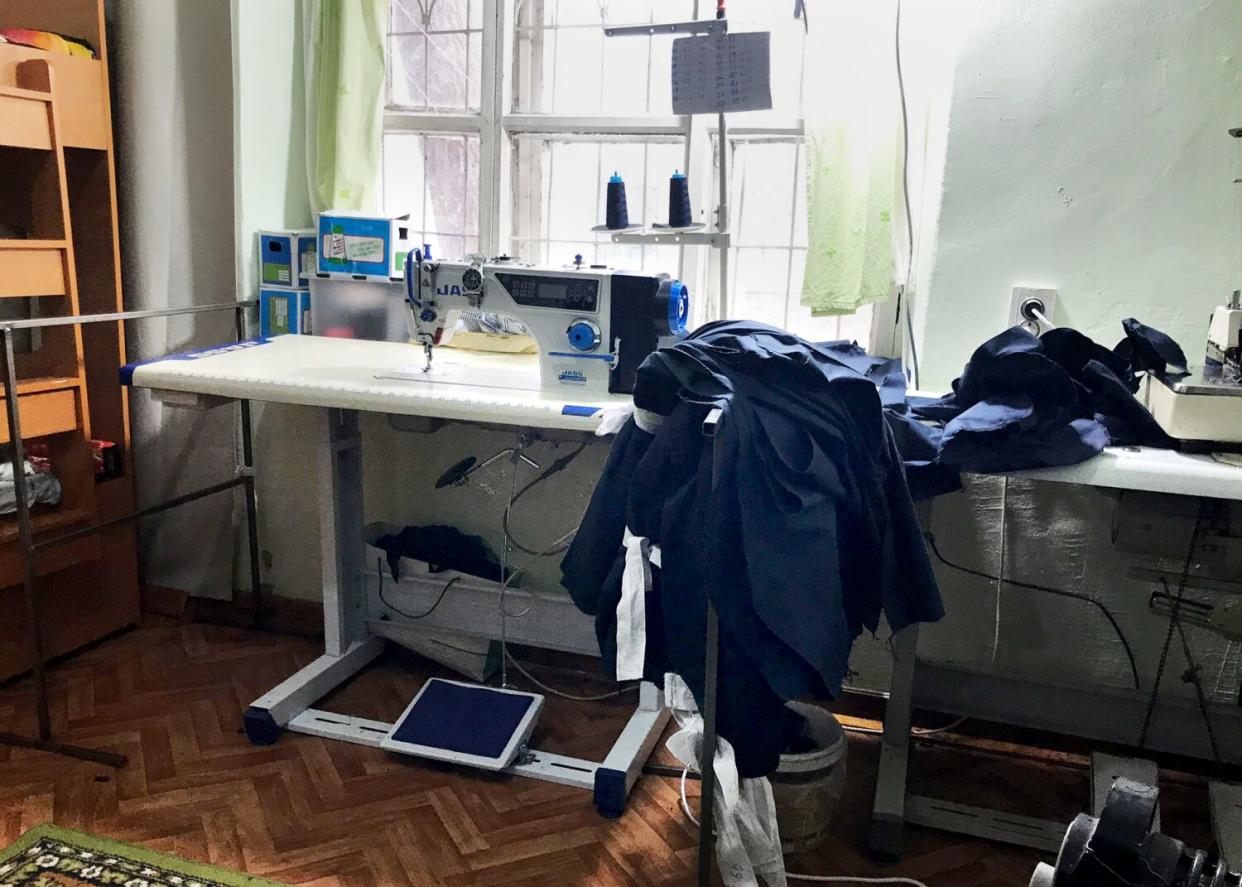
She earns a little money as a seamstress — and has to budget carefully.
Azizbayeva wants her husband to come back. But he wants to stay. And they have argued often and fiercely.
He has signed up as a volunteer at the nearby voyenkomat, and hopes to receive a passport after six months of military service. Thus far, he's been rejected because of his age — 53.
But the longer the war continues, he thinks, the better his chances are of being taken.
“He believes in the promise,” Azizbayeva says — and the money. The Russian army pays volunteers around $2,600 a month.
“He says if he falls at the front, I will get Russian citizenship,” Azizbayeva said. “But that's not what I'm after at all. I just want him to come home.”
What Azizbayeva even knows of her husband these days she learns from her eldest son, Ryzbek, who still talks to his father on the phone.
“He doesn't listen to me anymore,” Azizbayeva said matter-of-factlyas she sat at the dining table in the kitchen.
Just then, her friend Gulmairam knocked on the door, a smartphone in her hand. Every day, she makes a video call to her husband, Nurbek, who also remained in Russia.
He's doing construction work in Mariupol, a Ukrainian city nearly totally destroyed in Russian attacks and now occupied by Russia. “He gets $1,550 a month,” Gulmairam said.
A smile flits across her face.
“He wants us all to come to Mariupol,” she said. “He believes it's a nice place to live.”
Ziener is a special correspondent.
This story originally appeared in Los Angeles Times.
